Demystifying Islam
Demystifying Islam
Tackling the Tough Questions
Harris Zafar
ROWMAN & LITTLEFIELD
Lanham Boulder New York London
Published by Rowman & Littlefield
A wholly owned subsidiary of The Rowman & Littlefield Publishing Group, Inc.
4501 Forbes Boulevard, Suite 200, Lanham, Maryland 20706
www.rowman.com
16 Carlisle Street, London W1D 3BT, United Kingdom
Copyright 2014 by Rowman & Littlefield Publishers, Inc.
All rights reserved. No part of this book may be reproduced in any form or by any electronic or mechanical means, including information storage and retrieval systems, without written permission from the publisher, except by a reviewer who may quote passages in a review.
British Library Cataloguing in Publication Information Available
Library of Congress Cataloging-in-Publication Data
Zafar, Harris, 1979
Demystifying Islam : tackling the tough questions / Harris Zafar.
pages cm
Includes index.
ISBN 978-1-4422-2327-1 (cloth : alk. paper) ISBN 978-1-4422-2328-8 (electronic) 1. Islam. 2. IslamDoctrines. I. Title.
BP161.3.Z323 2014
297dc23
2014004827
 The paper used in this publication meets the minimum requirements of American National Standard for Information SciencesPermanence of Paper for Printed Library Materials, ANSI/NISO Z39.48-1992.
The paper used in this publication meets the minimum requirements of American National Standard for Information SciencesPermanence of Paper for Printed Library Materials, ANSI/NISO Z39.48-1992.
Printed in the United States of America
Contents
Acknowledgments
Truth be told, this book is the culmination of my research, lectures, classes, debates, and conversations about Islam and other faiths over a span of more than fifteen years. After graduating high school, I entered my bachelors program with a youthful rebellious desire to put my faith to the test. I challenged my faith and sought to determine not only why I should be a follower of this religion but also how to correctly understand and interpret it. This led not only to some memorable conversations with my parents but also to countless conversations and debates with Muslims and non-Muslimssome respectful, some confrontational.
I am most indebted to those who made arguments for which I had no response, as it prompted me to challenge my assumptions in order to determine whether Islam could provide a clear and cogent answer. Although they may be nameless memories, each person I challenged and disagreed with during those years has a part to play in my study, scholarship, and understanding of Islam. And because I assuredly offended some Muslims and non-Muslims on my journey toward higher learning and understanding of God and His teachings, I pray that God forgives me and blesses those people for unknowingly supporting my search for truth. I am truly grateful for those experiences.
In the wake of September 11, 2001, my local mosquethe Portland Rizwan Mosque, which stands as the first and oldest mosque built in Portland, Oregonwas flooded with requests for speakers to come and discuss Islam at various settings. I am grateful that our mosque leaders at that time trusted a zealous twenty-two-year-old to represent Islam at some of these gatherings. The countless talks and lectures I now so enjoy giving have their birth during these tense times after 9/11, when I was given an opportunity to share what I knew about the religion of Islam.
My love for the study of Islam and other religions would never have been so strong if I did not have my parents there to inspire this quest for finding and understanding God as well as His teachings. No amount of thanks can capture my gratitude for what they have done to set their son on the path toward enlightenment and higher education. Their love, instructions, and prayersand their willingness to address my questions instead of simply telling me to believe as they believehas brought me to where I am today. Additionally, their work in finding and translating many passages from Urdu into English during my painstaking research for this book has enabled me to introduce an English-speaking audience to references they otherwise would never find.
Undoubtedly, the biggest influence on not only my understanding of Islam but also my passion for greater study is Mirza Ghulam Ahmad, the founder of the worldwide Ahmadiyya Muslim Community. He claimed to be that Messiah who was foretold in Quranic and biblical scriptures as well as that long-awaited guide and reformer whom the Prophet Muhammad had said would come to unite humankind, raise God consciousness, and trigger a renaissance of Islam. He called people to faith through logic and reasona call that continues to resonate in my heart and mind. From him, I learned how reason and faith can live together in perfect harmony. He penned more than eighty books in order to elucidate the teachings of Islam in a rational and reasonable manner. He wielded only the pen in the clear explanation of faith and, thus, inspired me to also turn to scholarship and writing for the same purpose. His fifth and current successorHis Holiness Mirza Masroor Ahmad, the only Khalifa of Islam todayhas provided me with endless inspiration and guidance, for which I am eternally grateful.
During my exhaustive research for this book, I relied on many people to help me find literary gems hidden in libraries across the country. Their willingness to find these books, and even at times look up references for me, saved me from having to fly around the country myself and proved to be incredibly vital to my research and theses. Thank you sincerely for your time and support. Many others dedicated their time discussing and debating the many topics of this book with me and reviewing the multiple drafts of my chapters. Dr. Nasim Rehmatullah, Imam Ayyaz Mahmood Khan, Imam Mubasher Ahmad, Dr. Faheem Younus, Amjad Mahmood Khan Esq, Sardar Anees Ahmad, Saliha Malik, Aziza Rahman, Dr. Shanaz Tejani-Butt, Ronald Abdul Rahim Hubbs, and Rasheed Reno all provided insightful and valuable feedback after reviewing the contents of this book, for which I am very thankful.
What I learned through the process of researching and writing this book is that doing so is an incredibly selfish pursuit when you are married and have three beautiful young children. Without the support of my wife and best friend, Yasemin, I simply would not have been able to complete this book. Not only did she patiently allow me to live in the library when I should have been helping with our children, but she also provided invaluable support and feedback on every chapter of the book. She taught me the true meaning of the term soul mate.
Finally, I am grateful for the support and opportunity given to me from my editor, Sarah Stanton, and the entire team at Rowman & Littlefield. They believed in the vision and value of this book in confronting the hot topics about Islam and were very supportive and patient throughout this process. They set a bar for me that I pushed myself to my limits in order to meet, and the end product is all that much better for it.
Introduction
Do you find yourself unable to understand the religion of Islam or certain aspects of its teachings? Certainly, it feels like endless books, commentaries, articles, and speeches have been written since September 11, 2001, that offer either an opinion about Islam and Muslims, or a basic introduction to Islamic teachings and history. There are many Muslim and non-Muslim writers who have painted Islam as a beautiful and peaceful religion, founded by a prophet who sought to reform people and restore their connection with God. At the same time, there have been a growing number of publications in the past several years opining that Islam is a vile, violent, and oppressive religion that is incompatible with the values of the modern world.
These combating views have created a difficult landscape for the study of this rapidly growing religion. For the average reader, it can be a challenge to grasp even the basic tenets of Islam, let alone the more advanced and deeper topics about its theology. What complicates matters even further is that media reports from Middle East nations have shaped opinions or judgment regarding the teachings of Islam. It is no secret that there are Muslimsas well as nations that are predominantly Muslimwho have said or done some very shocking things over the past several years. Such incidents of irrationality, savagery, ignorance, and barbarity have not only shocked people in the West; they have also caused many to feel conflicted on the justification for these actions within the teachings of Islam.
Next page
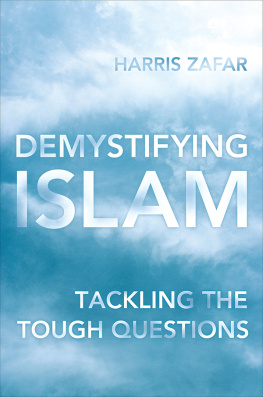
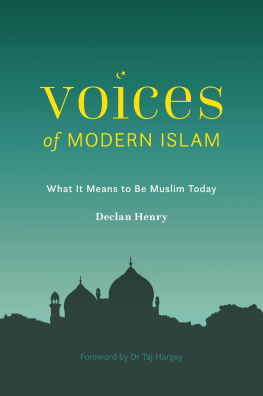
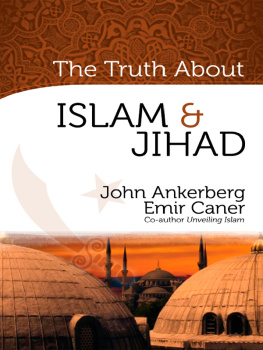


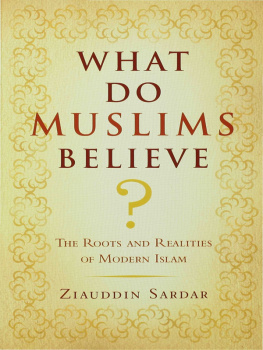

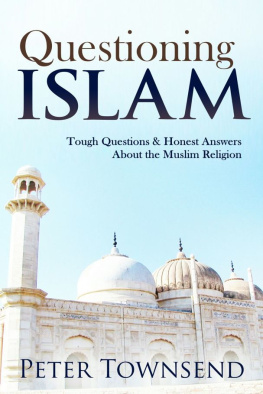
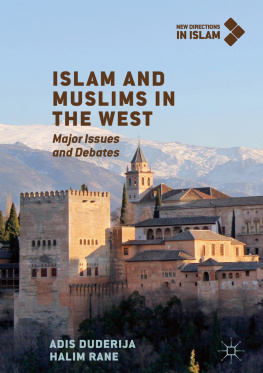
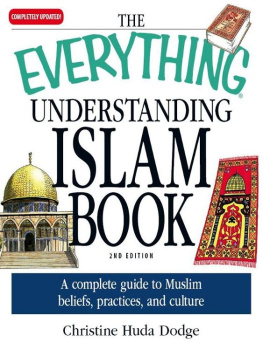
 The paper used in this publication meets the minimum requirements of American National Standard for Information SciencesPermanence of Paper for Printed Library Materials, ANSI/NISO Z39.48-1992.
The paper used in this publication meets the minimum requirements of American National Standard for Information SciencesPermanence of Paper for Printed Library Materials, ANSI/NISO Z39.48-1992.